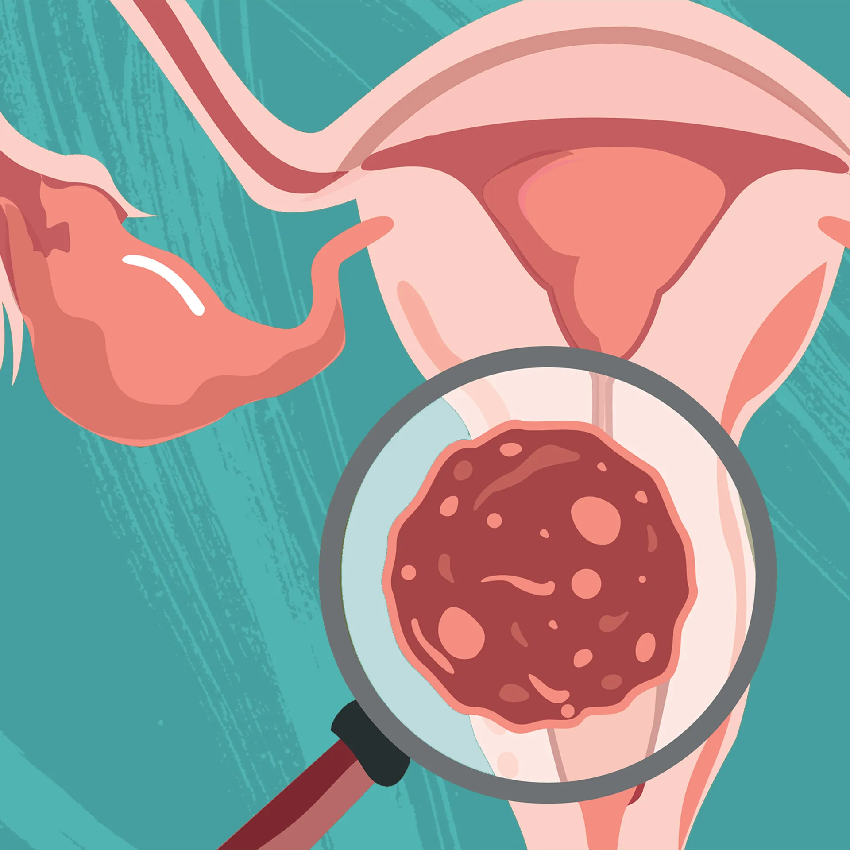
07 Nov What can you do to prevent gynecologic cancer?
Gynecologic cancer is any cancer that begins in the female reproductive organs. Risk factors are things that increase your chance of getting a disease, like cancer. The most common risk factor for many types of gynecologic cancer is the human papillomavirus (HPV). The 5 main types of gynecological cancer are:
- Cervical
- ovaries
- Uterine (from endometrium)
- Vaginal
- of vulva
To protect yourself from some types of gynecologic cancer, you can get the HPV vaccine. This vaccine can be received by anyone between the ages of 9 and 45. Talk to your healthcare provider about your risk for gynecologic cancer and about getting the HPV vaccine.
Some risk factors for gynecologic cancer, such as age, race, medical history, and genes, do not change. However, you can lower your risk of the disease by incorporating some healthy habits. The first step to prevention is knowing your personal risk factors for each gynecologic cancer.
Cervical Cancer Risk
- Have had or have HPV or HIV infection.
- He started having sex at a young age.
- He has had many sexual partners.
- Smoke or use tobacco.
- She is Hispanic.
Risk Factors For Ovarian Cancer

- You have gene mutations, such as BRCA1 or BRCA2, or genes associated with Lynch syndrome or ovarian cancer.
- You have a history of endometriosis (tissue from the wall of the uterus growing outside the uterus).
- Had ovarian cancer or breast cancer.
- She is Eastern European or Ashkenazi Jewish.
Risk Of Uterine (Endometrial) Cancer
- He was diagnosed with Lynch syndrome.
- You are obese or at least 50 pounds (22 kilograms) or more overweight.
- You are 50 years old or older.
- You have endometrial hyperplasia.
- Has a mutation of the PTEN gene (Cowden syndrome).
- You have used tamoxifen (such as Nolvadex or Soltamox ).
- She received estrogen hormone replacement therapy without progesterone.
Vulvar Or Vaginal Cancer Risk
- You have an HPV infection.
- You have had cervical or vulvar cancer, or pre-cancer (cells that show changes but are not yet cancer).
- You have a weakened immune system (due to HIV infection or another disease).
- Smoke or use tobacco products.
- You usually have itching or burning in the vulva. This condition is called lichen sclerosis.
Healthy Habits To Reduce The Risk Of Gynecological Cancer
The only gynecological cancer that we can detect with a simple and reliable test is cervical cancer. That’s why it’s important to watch for symptoms and contact your healthcare provider right away if you notice any changes.
MSK recommends incorporating these healthy habits to reduce the risk of gynecological cancer.
- Get vaccinated against HPV if you are between 9 and 45 years old. Check with your healthcare provider about when you or a family member should get the HPV vaccine. More people can get vaccinated now. Thus, they can protect themselves against the types of HPV that most often cause cervical, vaginal and vulvar cancer.
- Get regular Pap tests. MSK strongly recommends that you have regular Pap tests, even if you have already received the HPV vaccine. The Papanicolaou (Pap) test looks for changes in the cells of the cervix that may turn into cancer. If you were assigned female at birth (regardless of your gender at this time), you probably have a cervix.
- Use condoms or mouth guards during sexual activity to reduce the risk of getting HPV. Mouthguards are thin sheet that protects against skin-to-mouth contact.
- Do not smoke or use tobacco products.
- Exercise for at least 20 minutes per day. Try to combine aerobic and muscle-stretching activities. Some examples are walking, dancing, yoga, using resistance bands, or riding a bike. Cleaning the house or climbing the stairs are also ways to be physically active.
Actions You Can Take Today
- Know your risk for gynecologic cancer
- Learn about the symptoms of gynecologic cancer and talk to your healthcare provider about any changes in your body.
- Get vaccinated against HPV.
- Get regular Pap tests to check for cervical cancer.
- See a genetic counselor if you have a family history of gynecologic cancer. That professional will also be able to help you get tested for a genetic mutation (change or variant) that increases your risk.
- Contact our MSK CATCH clinic if you have a known hereditary cancer syndrome, such as Lynch syndrome.
You may like to read Write down these tips to prevent breast cancer


Sorry, the comment form is closed at this time.